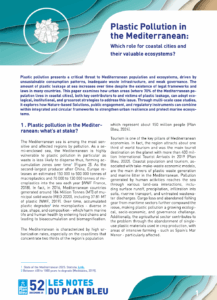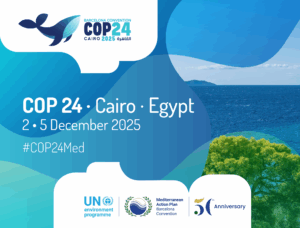The Ecosystem Approach Correspondence Group on Pollution Monitoring (CORMON) met in Marseille, France, from 19 to 21 October 2016, with the participation of over 60 national representatives and experts in the Mediterranean. Co-organized by the UNEP/MAP MED POL programme and Plan Bleu, the meeting was focused on Contaminants (EO9) and Eutrophication (EO5).
The Ecosystem Approach Correspondence Group on Pollution Monitoring (CORMON) met in Marseille, France, from 19 to 21 October 2016, with the participation of over 60 national representatives and experts in the Mediterranean.
Co-organized by the UNEP/MAP MED POL programme and Plan Bleu, the meeting was focused on Contaminants (EO9) and Eutrophication (EO5), two of the 11 Ecological Objectives of the Integrated Monitoring and Assessment Programme (IMAP) adopted earlier this year by the 19th meeting of the Barcelona Convention Contracting Parties (COP 19). A special session was also dedicated to Science-Policy Interface (SPI) Strengthening related to Marine Pollution.
The meeting was an opportunity to discuss various aspects related to the implementation of the IMAP decision, including the exchange of experiences on the revision of the national monitoring programmes, discussion of the concept for the preparation of the 2017 Quality Status Report (QSR); review of the status of the marine pollution monitoring regional data base and reporting, along with the MED POL database gaps and related quality assurance issues, and agree on solutions to address them. Discussions also included the review of a new proposal for Background Concentrations, Background Assessment Criteria, and Environmental Assessment Criteria (EACs) for contaminants and biological parameters.
Contracting Parties and invited scientific experts by Plan Bleu also discussed strengthening the Science-Policy Interface related to marine pollution with the aim to bridge the scientific gaps hampering the monitoring programmes at national and regional scales. A series of concrete priority scientific actions and recommendations have been proposed, especially aimed at addressing the issue of appropriate geographical scales for monitoring, reporting and assessing in the context of IMAP. The interface is being implemented in the framework of the UNEP/MAP Mid-Term Strategy, with the support of the EU funded Ecosystem Approach project.












